Are All the Tiny Black Bugs in My Bed Bed Bugs?
Sleeping is one of the things that we look forward to after a very long day. We recharge ourselves by sleeping by the end of the night to be refreshed the next day. But we can be disturbed even during our sleep by pesky pests crawling and hiding where we sleep. That’s terrifying, right? Pests that are known to annoy us during our sleep are bed bugs. They are usually found where humans and other pets sleep. Bed bugs can be almost anywhere in the world – even in your Saltlake home! They can be annoying because they suck your blood and leave you with an itch and bumps in the infected area. So blood attracts them, even the blood of other animals. Therefore, you should conduct bed bug removal if you have them. If you find bugs on your beds, you might think they are bed bugs. But are they?
Are tiny black bugs bed bugs?
No, tiny black bugs are not bed bugs. They are entirely two different species of pests. You will never see a bed bugs that is black in color. Bed bugs are known for their tiny size, but they are never in black color. So what do bed bugs look like?
What do bed bugs look like?
Bed bugs are tiny, like tiny black bugs, but you can still see them. An adult bed bug is as small as an apple seed. On the other hand, immature bed bugs are smaller than adult bed bugs, and bed bug eggs are just about the size of the head of a pin. Bed bugs also differ in color. Adult bed bugs have a reddish-brown color, immature bed bugs have a translucent whitish-yellow color, and bed bug eggs are white in color. You might also confuse bed bugs with lice because of their color. But are lice and bed bugs the same?
No, they are not also the same. Lice usually live on their host’s head and suck their blood, while bed bugs hide under the mattresses and beds of their host. Moreover, lice are more visible than bed bugs. You can easily see them than bed bugs as you can use a lice remover tool to catch all the lice. Additionally, if your head is itchy, it will most likely be lice. You will immediately feel the itch when lice bite you. But, when bed bugs bite you, you will not feel anything yet. It will take some days before you will see some symptoms like inflamed spots, which are commonly located on the face, arms, neck, and hands.
Where do tiny black bugs come from?
If they are not bed bugs, tiny black bugs don’t come from used furniture, clothes, luggage, and household goods that were moved from a new location. Instead, tiny black bugs come from the outside of your Salt Lake house. They can enter your house easily if they see entryways like holes, crevices, and windows. As a result, you may also see tiny black bugs on your window sill.
How to get rid of tiny black bugs?
Even though tiny black bugs are not bed bugs and are not as annoying as bed bugs, they can also be a nuisance. They can cause damage to your plants, and if there are many of them inside your Saltlake home, they can be a nuisance in the eye. So it is still best to get rid of them.
Baking soda
Baking soda is a natural solution that is known to kill different kinds of pests, including tiny black bugs. The tiny granules of baking soda can cut through the body of the pests and cause dehydration to them. All you have to do is sprinkle some baking soda in some parts of your home, like under kitchen appliances, cupboards, drawers, and carpet.
Trap
You can also create DIY traps that include sugar-based ingredients to attract pests. Grab a piece of cardboard and a mixture to make it sticky, like sugar and water or corn syrup. You can also use a plastic bottle and cut the top of it. Then, coat its wall with a good amount of cooking oil inside the bottle. This will create a slippery surface for the pests, preventing them from crawling back out.
Essential Oils
Essential oils are one of the most common ways to repel pests. They may not kill pests, but they can get rid of them by repelling them because of their scent.
Saltlake Pest Control
Calling and hiring Saltlake pest control is the best way to get rid of tiny black bugs in your home. They are experts in determining the cause of your infestation and its severity. In addition, they can plan out the best method to get rid of them and prevent them from returning.
Related Articles
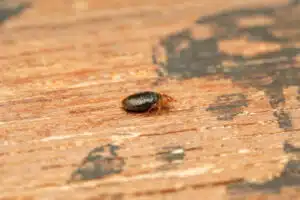
Tick vs. Bed Bugs: Differences and Similarities
Understanding the differences between two common blood-sucking pests, ticks and bed bugs, is important. We want to make sure you know exactly what kind of pests you’re dealing with,
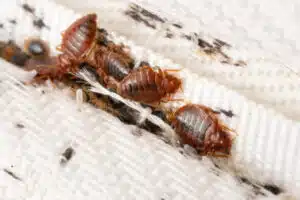
Where Do Bed Bugs Come From, and How to Prevent Them? A Guide for Salt Lake Residents
Bed bugs can be a major nuisance and cause various physical and emotional problems, including skin irritation, anxiety, and sleep disturbances. In Salt Lake City, bed bugs are a growing concern, especially in apartment buildings, hotels, and other high-density living spaces. But where do bed bugs come from, and how can you prevent them from infesting your home or property?
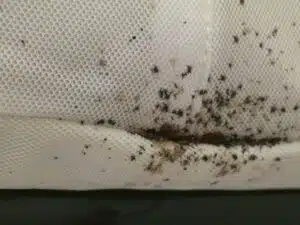
Are All the Tiny Black Bugs in My Bed Bed Bugs?
Sleeping is one of the things that we look forward to after a very long day. We recharge ourselves by sleeping by the end of the night to be refreshed the next day. But we can be disturbed even during our sleep by pesky pests crawling and hiding where we sleep. That’s terrifying, right? Pests that are known to annoy us during our sleep are bed bugs. They are usually found where humans and other pets sleep. Bed bugs can be almost anywhere in the world – even in your Saltlake home! They can be annoying because they suck your blood and leave you with an itch and bumps in the infected area. So blood attracts them, even the blood of other animals. Therefore, you should conduct bed bug removal if you have them. If you find bugs on your beds, you might think they are bed bugs. But are they?
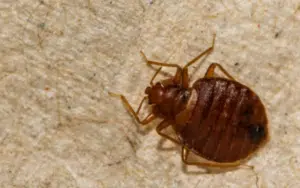
Can Bed Bugs Live in Your Car?
Bed bugs are small, flat, and oval-shaped insects that feed on the blood of humans and animals. During the day, bed bugs hide in cracks and crevices around beds, furniture, and baseboards. You can also find them in mattresses, bed frames, blankets, carpets, and other fabric items throughout your home. While it is possible for bed bugs to infest your car, they’re less likely to do so than inside a house or other structure.
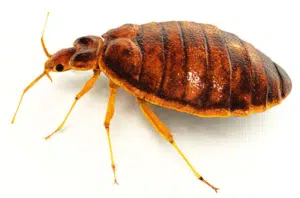
How to Find Bed Bugs in Your Home
Bed bugs are small, blood-sucking that feed on human and animal blood. They belong to the family Cimicidae, contain over 100 species, and have been around for millions of years.

Can Bed Bugs Jump?
Bed bugs are a common household pest that can be difficult to get rid of. These tiny insects can live in any crevice or crack in your home and feed on blood.
